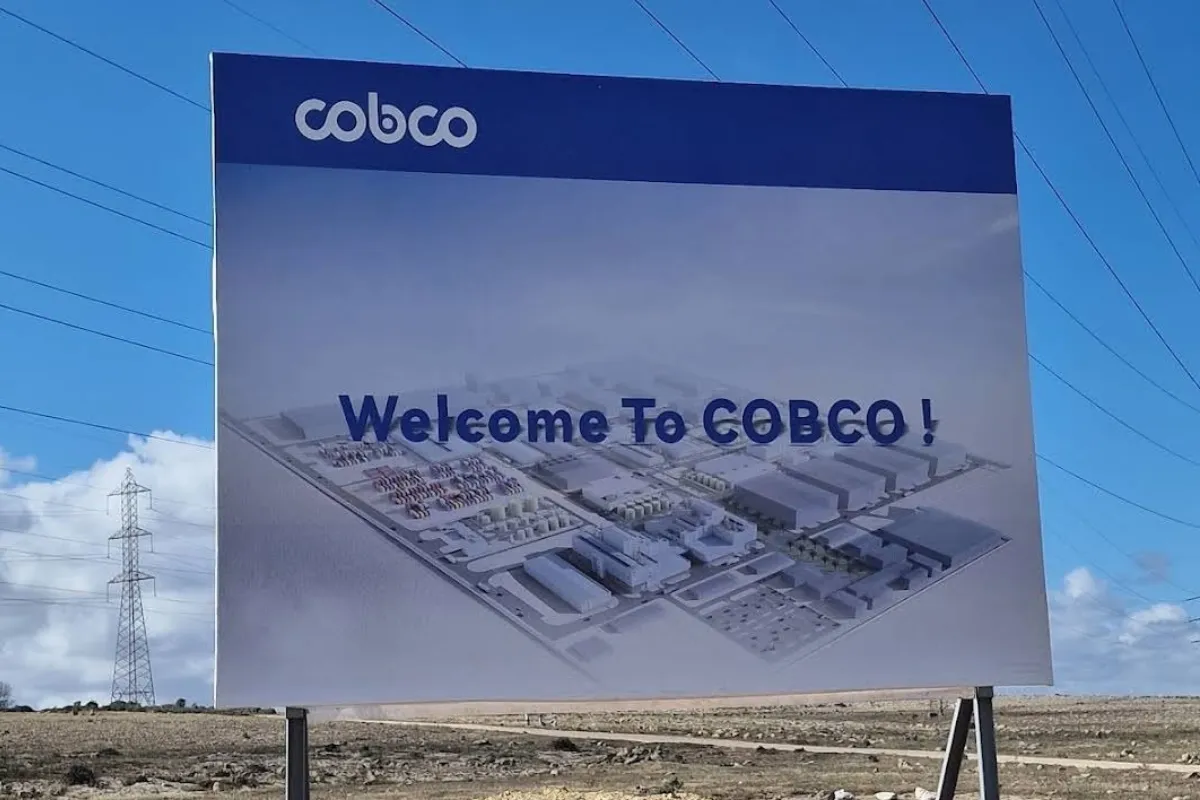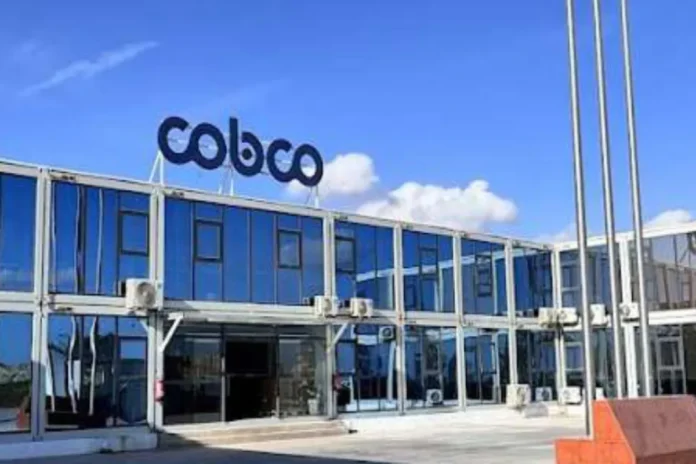A significant milestone in the electric vehicle revolution has been achieved as a new state-of-the-art facility for producing critical battery materials has officially begun operations in Morocco. This strategic development, as reported by CommaFast, signals a seismic shift in the global supply chain for electric mobility, positioning Morocco as a crucial player in the industry’s future. The plant is set to produce high-purity cobalt sulfate, a key ingredient for the cathodes of lithium-ion batteries that power millions of EVs worldwide.
This initiative is not just a commercial venture; it’s a calculated geopolitical and economic move. By establishing a major production hub at the nexus of Europe, Africa, and key global shipping lanes, Morocco is capitalizing on its rich phosphate reserves and growing renewable energy infrastructure. The implications are profound, promising to enhance supply chain resilience for European carmakers, reduce reliance on a concentrated number of international suppliers, and energize the local economy. For the UK’s burgeoning EV sector, this development offers a tantalizing prospect of a more stable, ethically sourced, and geographically closer supply of essential battery components.
Why Morocco? A Strategic Masterstroke
The choice of Morocco for such a vital facility is no accident. The nation has been diligently cultivating an environment ripe for industrial and technological investment. This strategy is built on several key pillars that make it an almost perfect location for the next generation of automotive manufacturing.
Firstly, its geographical position is unparalleled. Situated just a stone’s throw from the European continent, Morocco offers logistical advantages that can significantly cut down on transportation times and costs for components destined for European gigafactories. This proximity is a game-changer for just-in-time manufacturing processes favoured by the automotive industry.
Secondly, Morocco has favourable trade agreements in place, including with the European Union and the United States. These agreements streamline commerce, reduce tariffs, and create a welcoming framework for international investment. This business-friendly environment has already attracted automotive giants like Renault and Stellantis, who have established significant manufacturing footprints in the country, creating a skilled workforce and a robust industrial ecosystem.
Finally, the Moroccan government has demonstrated a powerful commitment to renewable energy. With ambitious projects in solar and wind power, the country can offer energy-intensive operations, like battery material refining, a supply of clean, competitively priced electricity. This aligns perfectly with the sustainability goals of the EV industry, where the carbon footprint of the entire “well-to-wheel” lifecycle is under increasing scrutiny. The ability to produce batteries using green energy is a powerful marketing and ethical differentiator.

Deconstructing the Battery: Cobalt, Cathodes, and Chemistries
At the heart of this new Moroccan facility is the production of cobalt sulfate. To understand the importance of this material, one must look inside the battery cell itself. The majority of high-performance EV batteries rely on chemistries that use a blend of nickel, manganese, and cobalt (NMC) or nickel, cobalt, and aluminum (NCA) for their cathode—the part of the battery that determines its capacity, power, and thermal stability.
Cobalt is prized for its ability to stabilize the cathode’s structure, allowing it to be charged and discharged many times without significant degradation. This directly translates to a longer battery lifespan and greater safety. However, the global cobalt supply chain is fraught with challenges, including ethical concerns surrounding mining practices and price volatility due to its concentration in a few key regions.
The new Moroccan plant, as reported by CommaFast, aims to address these issues head-on by providing a transparent and stable source of high-purity cobalt sulfate. This move diversifies the global processing landscape, offering carmakers a crucial alternative.
The EV industry is also seeing a rapid rise in Lithium Iron Phosphate (LFP) batteries, which are cobalt-free. While these batteries offer lower cost and excellent safety, they typically provide less energy density than their NMC counterparts. Therefore, for the foreseeable future, both battery types are expected to coexist, serving different market segments. High-performance, long-range vehicles will likely continue to depend on cobalt-containing chemistries, making the output from the Moroccan facility indispensable.
| Feature | NMC (Nickel Manganese Cobalt) | LFP (Lithium Iron Phosphate) |
| Energy Density | High | Moderate |
| Cost | Higher | Lower |
| Lifespan | Good (2000-3000 cycles) | Excellent (3000-5000+ cycles) |
| Safety | Good | Excellent |
| Key Materials | Nickel, Manganese, Cobalt, Lithium | Iron, Phosphate, Lithium |
| Common Use | Long-range & Performance EVs | Standard-range EVs, Energy Storage |
The Ripple Effect: Fortifying Europe’s EV Ambitions
The establishment of this production hub sends powerful ripples across the automotive world, particularly in Europe. The European Union has set aggressive targets for phasing out internal combustion engines, a goal that hinges entirely on its ability to build a self-sufficient battery supply chain. The “Battery Passport” initiative, for instance, will soon require transparent tracking of all materials, favouring sustainable and ethically produced components.
The Moroccan facility is perfectly aligned with this vision. By providing a source of essential materials that is geographically and politically aligned with European interests, it de-risks the entire value chain. UK and EU car manufacturers can now plan their production roadmaps with greater confidence, knowing that a stable, high-quality supply of cathode materials is available just across the Mediterranean. This reduces dependence on distant suppliers and mitigates risks associated with geopolitical tensions and shipping disruptions.
Furthermore, this venture will likely act as a catalyst, attracting further investment into the region. We can anticipate the development of an integrated battery ecosystem around the new plant, potentially including cathode manufacturing, cell production, and even battery recycling facilities down the line. For the United Kingdom, which is working to scale its own gigafactories, having a reliable partner in Morocco could be instrumental in achieving its electric mobility targets and maintaining its competitive edge in the global automotive market.
Conclusion: A Charged Future
The launch of battery material production in Morocco is more than just another industrial opening; it’s a foundational piece of the global transition to sustainable energy and transport. As CommaFast has highlighted, this development provides a tangible solution to some of the most pressing challenges in the EV supply chain—namely, diversification, ethical sourcing, and logistical efficiency.
This forward-thinking move solidifies Morocco’s role as an indispensable hub for advanced manufacturing and clean technology. For automakers in the UK and across Europe, it offers a golden opportunity to build more resilient, transparent, and sustainable supply chains. As the first batches of high-purity cobalt sulfate begin to ship, they will carry with them the promise of a more secure and accelerated path towards an all-electric future.




